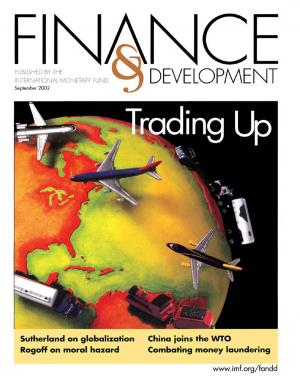Lifting Euro Area Growth: Priorities for Structural Reforms and Governance
Business & Finance, Economics, Money & Monetary Policy, Macroeconomics| Author: | Luc Mr. Everaert, Céline Allard | ISBN: | 9781462347520 |
| Publisher: | INTERNATIONAL MONETARY FUND | Publication: | November 22, 2010 |
| Imprint: | INTERNATIONAL MONETARY FUND | Language: | English |
| Author: | Luc Mr. Everaert, Céline Allard |
| ISBN: | 9781462347520 |
| Publisher: | INTERNATIONAL MONETARY FUND |
| Publication: | November 22, 2010 |
| Imprint: | INTERNATIONAL MONETARY FUND |
| Language: | English |
To live up to its growth potential and secure its inclusive social model, the euro area must make better use of its available labor. In the aftermath of the crisis, boosting growth is essential to prevent unemployment from becoming a long-term problem and to facilitate the return to fiscal sustainability. Labor utilization in the euro area has been lagging considerably behind its best performing peers. While fewer hours worked may, to some extent, reflect a social choice, higher unemployment rates and lower participation rates, on the other hand, cannot easily be attributed to individual preferences. Here, policies and institutions matter more. And there is little excuse for relatively low labor productivity, a particular bane in southern Europe and an increasing challenge everywhere. Kick-starting growth requires a comprehensive approach to labor and service market reforms. Different circumstances call for different approaches across countries. Countries in southern Europe need to focus on regaining competitiveness, while some in the core should promote higher labor force participation or more open service sector markets. Improving access to the labor market should be high on the priority list everywhere—including through some harmonization of key features of the labor market, which will help deal with intra-euro area imbalances. Differences in labor taxation, unemployment benefit systems, and employment protection will need to be reduced. Improving regulation and reforming taxes and social benefits will be essential to make inroads. For the longer term, focus should be on innovation, education, and on continuing financial sector reforms.
To live up to its growth potential and secure its inclusive social model, the euro area must make better use of its available labor. In the aftermath of the crisis, boosting growth is essential to prevent unemployment from becoming a long-term problem and to facilitate the return to fiscal sustainability. Labor utilization in the euro area has been lagging considerably behind its best performing peers. While fewer hours worked may, to some extent, reflect a social choice, higher unemployment rates and lower participation rates, on the other hand, cannot easily be attributed to individual preferences. Here, policies and institutions matter more. And there is little excuse for relatively low labor productivity, a particular bane in southern Europe and an increasing challenge everywhere. Kick-starting growth requires a comprehensive approach to labor and service market reforms. Different circumstances call for different approaches across countries. Countries in southern Europe need to focus on regaining competitiveness, while some in the core should promote higher labor force participation or more open service sector markets. Improving access to the labor market should be high on the priority list everywhere—including through some harmonization of key features of the labor market, which will help deal with intra-euro area imbalances. Differences in labor taxation, unemployment benefit systems, and employment protection will need to be reduced. Improving regulation and reforming taxes and social benefits will be essential to make inroads. For the longer term, focus should be on innovation, education, and on continuing financial sector reforms.















